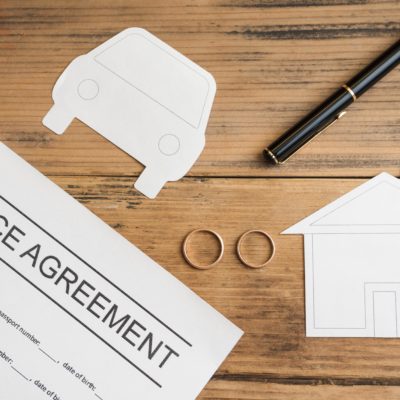Exploring The Emotions of a Divorce | A Guide To Coping Strategies
At Ratcliff Solicitors, we understand that divorce is an emotionally turbulent journey marked by a rollercoaster of feelings that can be overwhelming and challenging to navigate. The separation of a marriage often executes a complex array of emotions, from grief and anger to anxiety and loneliness. Understanding the impact of divorce on emotional well-being is an important step towards healing and rebuilding a warm, fulfilling life. This article aims to provide insights and practical strategies for those going through the spiral of emotions of divorce, helping you to get back on the road to healing and coping with these temporary feelings.
Whether you are in the middle of a divorce, contemplating the process, or supporting a friend or family member through it, this article is designed to highlight effective coping mechanisms, encourage self-care practices, and enhance the importance of seeking professional support during this period. Remember, you are not alone in this journey, and when incorporating the correct strategies, it is possible to emerge stronger, wiser and emotionally resilient.
Understanding The Emotional Impact of a Divorce
As we all know, divorce is not an easy decision to make, and neither are the feelings that come along the way. Divorce is a deeply emotional experience that can often trigger an intense impact on individuals, experiencing a wide spectrum of feelings. The emotional chaos associated with divorce can be harsh and varied, including grief for the loss of the relationship, anger at the circumstances leading to the separation, anxiety for the future and even relief from a strained partnership. It is crucial to recognise that these emotions are a natural part of the grieving process, and each person’s response is unique.
Grieving the end of a marriage is a common emotional response, a similar feeling to mourning the loss of a significant part of one’s life. This grief may come and go in waves, with moments of sadness, anger, denial, and acceptance. Understanding these natural emotions is crucial, as it allows the individual to navigate the grieving process with steady patience and self-compassion.
Coping mechanisms – Practical strategies for emotional well-being
Taking time out of your day to be practical with coping with your emotions is a great start to getting back on track, the following coping mechanisms are essential for a healthy, accepting relationship with yourself, here are some mechanisms:
Journaling
You should start your day by writing down all of your thoughts and feelings in a journal, this way, you have a safe space to express and process your feelings. This can help with clarity, identifying patterns and tracking your emotional progress along the way.
Exercise
Engage in regular physical activities such as going on walks, jogging, or joining a fitness class. Exercise releases endorphins and the body’s natural moods lift, helping to reduce stress, reduce anxiety, and improve overall emotional well-being.
Meditation
Practice meditation a few times a day, for a few minutes. These practices promote present-moment awareness, helping you to stay in the present moment, and reduce the feelings of being overwhelmed. Meditation can also improve focus, enhance mental well-being and regulate emotions.
Helping Children Navigate Emotional Challenges
Divorce is a transformative event not only for the individuals involved but also for their children, who may experience a range of emotions as they explore the changes in their family household. Understanding and addressing the emotional challenges that children face during a divorce is important for their well-being. Here are 3 ways to support children through this difficult time:
Open Communication
Create an environment where your children will feel comfortable to speak to you and ask you questions. Let them know that it is perfectly normal to feel sad, angry or even confused.
Reassure Unconditional Love
Reinforce that divorce is not their fault and that it does not change the love that their parents have for them.
Maintain Consistency
Ensure to keep a routine as much as possible. If you decide to change the routine a lot, it may feel very different for the child, making them have to adapt to the new lifestyle, so keep to a routine that feels similar to before.


